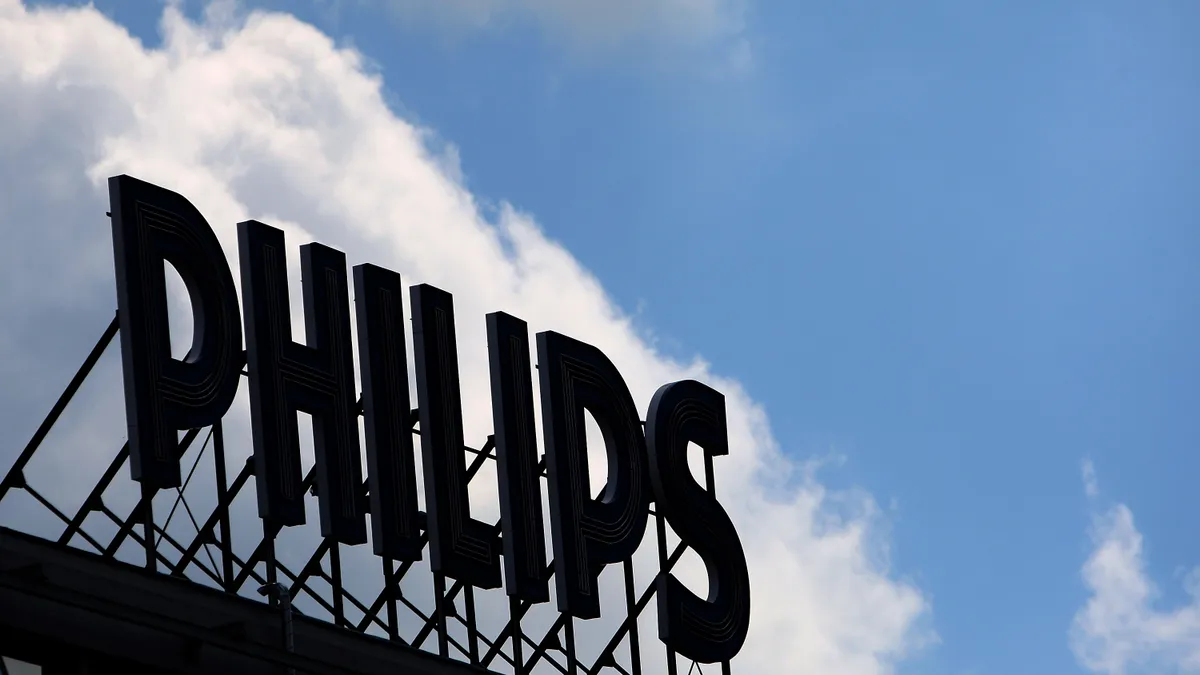Dive Brief:
- Patients who use Philips’ DreamStation 2 continuous positive airway pressure (CPAP) machines should monitor them for signs of overheating, the Food and Drug Administration said in a Tuesday safety notice.
- The agency said it had recently received reports of fire, smoke, burns and other signs of overheating while people are using Philips’ DreamStation 2 CPAP machines.
- Some of the DreamStation 2 devices were sent as replacements to patients whose DreamStation 1 machines were recalled due to health risks associated with soundproofing foam. Problems with the foam in Philips CPAP, BiPAP machines and ventilators led to a recall of more than 15 million respiratory devices.
Dive Insight:
The FDA noted a “sharp increase” in reports of thermal issues associated with the DreamStation 2 machines. Between Aug. 1 and Nov. 15, the agency received more than 270 reports of thermal problems, while it had received fewer than 30 related reports in the previous three years.
In an emailed statement, Philips spokesperson Steve Klink said the 270 reports were filed over the past three months, but they cover a three-year period “following a retrospective review of possible thermal complaints related to DreamStation 2 since the launch of the product.” The company did not disclose how many injuries were reported.
Medical device manufacturers are required to report to the FDA within 30 days when they learn about malfunctions that could cause serious injury or death.
The problem may be related to an electrical or mechanical malfunction that can cause the machine to overheat in certain situations, the FDA said, based on its analysis of reports, though it cautioned “this is a developing situation.”
Philips said it is in discussions with the FDA about the reports of “possible thermal issues in the humidifier of the DreamStation 2 sleep therapy device while in use.”
In 2021, Philips recalled more than 15 million sleep apnea devices and ventilators due to health risks associated with the foam used to soundproof the devices, which could break down and be inhaled by patients. The DreamStation 2 devices, which were cleared by the FDA in 2020, use a different type of foam. The FDA said it does not believe the overheating problems are related to the foam in the devices based on current evidence.
“We will continue to monitor the company’s handling of this, among other safety issues, to ensure they take appropriate steps to mitigate the risk to patients,” Jeff Shuren, director of the FDA’s Center for Devices and Radiological Health, said in a statement. “We share the public’s concerns regarding the new and continued safety issues of CPAP machines and certain recalled medical devices manufactured by Philips. Addressing these safety concerns remains a top priority for the FDA.”
Philips said people can continue to use the device as long as they follow the safety instructions. The FDA recommends people with a DreamStation 2 device inspect the machine for unusual smells or changes in appearance before and after each use. The FDA said it is in ongoing discussions with Philips about mitigation strategies for the safety issue and will update the public accordingly.











